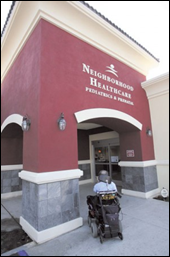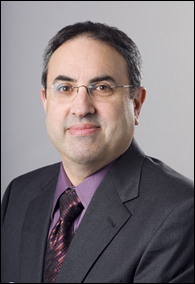The article about Pediatric Associates in CA has a nugget with a potentially outsized impact: the implication that VFC vaccines…
News 11/17/09
Senator John Kerry introduces legislation to help small medical practices become eligible for SBA loans to cover EMRs and e-prescribing costs. Funds would be used for both hardware and software. Under the proposed bill, the SBA would guarantee up to 90% of a loan, with a maximum of $350,000 for an individual and $2 million for a group practice.
Community health organization Neighborhood Healthcare (CA) selects eClinicalWorks’ PM/EMR and Enterprise Business for its 115 providers across 11 locations.
Vālant Medical Solutions launches Vālant Psychiatric Suite 3.0, which the company says is the first and only completely Web-based practice management and EMR suite designed specifically for psychiatrists.
Meanwhile, psychiatrists in Michigan are embracing telepsychiatry as a effective means to treat patients in underserved areas. Videoconferencing tools are particularly valuable to address the critical shortage of child psychiatrists. Only about 200 child psychiatrists are available to help the estimated 500,000 children who need treatment.
Southern Maryland is awarded almost $5 million in federal stimulus money for healthcare projects, including $2.5 million to install telehealth technology in the homes of 250 homebound patients. That’s $10,000 per household, which sounds pretty steep to me.
athenahealth shares hit a 52-week high after announcing the U.S. Patent and Trademark Office awards the company a patent for its athenaNet billing rules engine.
The Heart Institute at Intermountain Medical Center scrubbed its EMR database to analyze the effect of inadequate vitamin D levels. Researchers found that those with low vitamin D were at higher risk for stroke, coronary heart disease, diabetes, depression, and early death. I’m taking my calcium supplements.
A Pennsylvania cardiologist tells the local paper that his practice is 99.8% paperless, two years after going to eClinicalWorks’s EMR. He and the 24 other providers in his group also use Dragon Medical and estimate they are saving almost $200,000 a year in transcription and paper costs. He admits the EMR does not save time because the record takes longer to document. He is still a big proponent, however, because the electronic record is “more complete and immediately available.”
The Internet ranks third behind health professionals and family members as a source for medical advice. The 49-and-under crowd is most likely to search for health information on the Internet before consulting their doctor. I’m actually one of those type patients (and caretaker for family members) who diligently searches the Web for healthcare information. Come to think of it, I did this for my dog over the weekend when I was trying to figure out if her skin rash might be cancer (the vet told me to give her a Benadryl and since then, she has made a miraculous recovery.)
First Citizens Bank agrees to market mPay Gateway’s patient payment system to its physician practice clients.
McKesson announces its new interoperability product, Horizon Connect. McKesson will use its RelayHealth platform to facilitate the exchange of patient data between Horizon users in different venues of care.
A reader forwarded us the results of an AAFP survey of 2,556 family practice doctors rating their EMRs. The full article is available by subscription only and the author admits some unavoidable bias (self-selected respondents, too many vendors to ensure adequate sample sizes for all, and different levels of expectation based on practice size). Readers are warned about taking the results as anything significant. They didn’t really name overall winners, but the closest thing to it placed the top 10 as (1) e-MDs, (2) MEDENT, (3) Praxis, (4) Amazing Charts, (5) eClinical Works, (6) Epic, (7) Practice Partner, (8) Allscripts Professional, (9) Centricity, and (10) Aprima.
Mark Leavitt, M.D., is retiring as chair of the Certification Commission for Health Information Technology effective March 31, 2010. The commission’s board has initiated a national search for a successor. Leavitt says he’s leaving for “personal” reasons and had intended to stay in the position for only five years (he helped launch CCHIT in 2004).
eMerge Health Solutions is a new HIT company hoping to market the wireless, voice-activated system it developed for an 18-physician gastro practice in Ohio. The product sounds efficient: providers wear wireless headsets and create the electronic record while performing colonoscopies. No need for extra staff to take notes or dictate after the procedure. As nifty as it sounds, I think they’d be better off selling the technology to a larger EMR company than trying to break into this market on their own. Too much fear and uncertainty right now.
IQMax announces the release of IQSpeak for the iPhone. IQSpeak integrates with the physician’s patient schedule and allows the provide to dictate on the iPhone.
The CMS paid 85,000 physicians more than $92 million in incentives as part of the 2008 PQRI program. More than 153,600 providers participated in 2008 PQRI, proving the reporting requirement were too burdensome for almost half the participants. The average incentive amount was over $1,000; the highest single payment was $98,000. CMS paid a total of $36 million in PQRI awards in 2007.





Re: Senator Kerry introduces legislation
The legislation he introduced is basically identical to legislation that already passed the House in late October by a large margin (H.R. 3854).